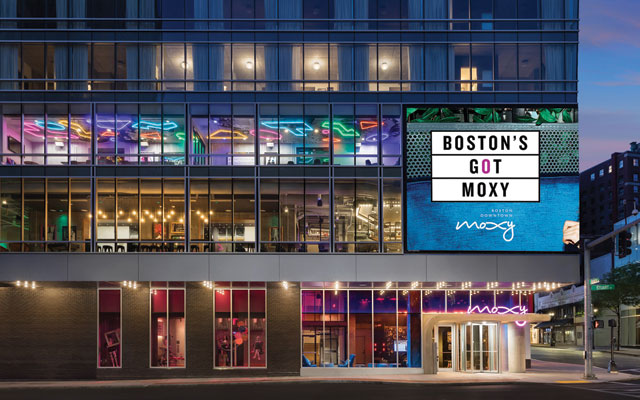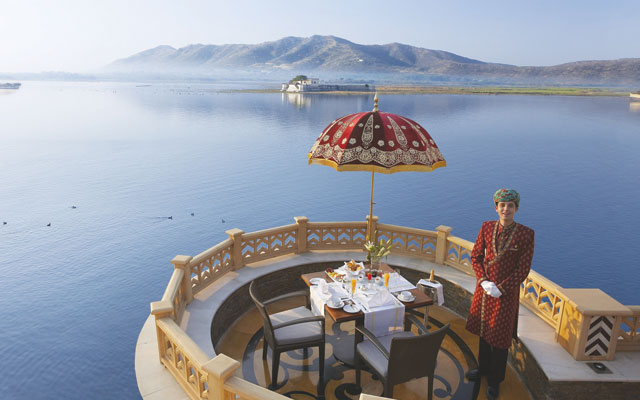In this roundtable discussion, travel experts from across Asia-Pacific examine and debate the value of hotel branding as travellers gravitate towards unique accommodation experiences amid an increasingly complex hospitality marketplace burgeoning with new lifestyle brands.
TTG Asia: What key changes are you seeing for hospitality brands? Are brands still relevant?
Lim: Chain hotels felt quite sterile and were geared towards efficiency when we started out 12 years ago. However, in the last few years, we’ve seen big brands starting to soften and incorporate properties with a sense of place.
They’re no longer in glassy buildings, but can be housed in historical buildings. These hotels can now create a measured experience for travellers; they have good service; and they know how to operate a hotel well. Big brands can now have a boutique feel, and they know travellers are looking for a variety of experiences, not just the singular feeling of staying in a Hyatt or Westin. With boutique hotels, there is the risk of having to deal with weak booking and payment mechanisms.
Harris: With more hotels consolidating and brands merging under one umbrella, we are seeing an even stronger sense of consistency among hotels under the same brand, leading to an increase in brand loyalty.
Ho: Customers are focusing less on brands but rather on good service standards and price value. Travellers are also seeking options for smaller, independent accommodation with less facilities and F&B outlets. Brands may still be relevant to corporate travellers and luxury clients, but leisure travellers are now more attracted to residential-style accommodation that are well connected to shopping areas and restaurants.
Marc: Main hotel chains nowadays prefer to invest in acquisitions and huge marketing campaigns instead of developing new products and services for their customers. Their focus seems to be on expanding faster globally and in some cases at the expense of guests’ demand for good service, amenities and comfort.
Anthony: Brands will become more relevant. It is the brands that will ride out Airbnb’s rapid expansion. Branded hotels have strong brand loyalty and this will remain. While a small percentage of market share may be lost to Airbnb and other short term accommodation services, the majority of travellers are still keen on staying in branded properties they are familiar with. Brands are also relevant for well-heeled travellers who seek good service, comfort, familiarity of brand and a personal touch.
Bhoonee: Brands will still remain relevant to people with status as they have always been brand conscious. Also with brands, travellers can expect a consistent level of service at the hotel regardless of which part of the world they are in. There are no surprises for the customer. Brands also offer loyalty reward programmes and this is an added value.

TTG Asia: What hotel branding trends and preferences do you notice among your clients, especially younger travellers who are said to be more brand agnostic?
Marc: The younger generation is looking for new and unique experiences (which explains the growing trend for boutique hotels over standardised hotel chains). The power of Instagram also emphasises the demand for independent hotels and villas; millennials crave inclusion and recognition from their online community, so they tend to gravitate towards places with social media credibility which also explains the rise in popularity of villa rentals.
Harris: The current trend among younger travellers is lifestyle travel and we are seeing many hotel brands edging towards this by combining high-quality services and personalised amenities and touches. With Hyatt developing the Andaz brand and Marriott with Edition, millennials are able to stay loyal to a larger umbrella brand, yet find a concept that meets their personalities and requirements.
Bhoonee: Millennials often seek hotels that offer wellness facilities such as spa, gym, rooftop bar and restaurants offering healthy cuisines due to a growing wave of health consciousness. Location is also important – hotels that are close to popular shopping districts and spots, or near the beach tend be more attractive to them. Millennials are willing to pay more for the location of hotels that meet their requirements as compared with their counterparts a decade ago who tended to be more careful with their spending, and just went for the basics.
Ho: Younger travellers want an environment focused on wellness, offering simple yet stylish comforts, and at a good price point. Personalised services are growing in demand. To tap into the young travellers market, direct online marketing and social media channels are the way to go.
Lim: We have younger clients who grew up staying at big hotel chains with their parents, and they would ask us to book them in those hotels. But we also have both young and old guests who are willing to try boutique brands.
Anthony: India and regional markets are cost-conscious. Even the well-to-do would rather stay in a three- or four-star property or local brand rather than in a five-star branded accommodation. They don’t mind staying a little bit out of the central area if it gives them some savings and which can then be spent on other things like entertainment and shopping.
Millennial travellers see the hotel as just a place to stay. They are not looking to have the full hotel experience.
In the past, staying in a branded property was part of the bragging rights. Today, travellers use social media to share or brag about their experiences.

TTG Asia: What benefits and trade-offs have come with the spate of boutique brand buyouts by bigger chains? How does it impact your customers and you as a travel expert?
Marc: Greater access to powerful marketing funds has been a major benefit, along with bigger customer databases and improved efficiency in booking systems and websites. But, of course, all these have come at a cost. The trade-offs would be a proportionate tightening of rules and regulations, combined with a lack of flexibility in terms of sales, distribution and marketing.
As a DMC, we are facing more difficulties with regard to contracting and special deals. Big hotel chains are growing increasingly intransigent in promoting the best rates on their own websites rather than through a more flexible independent.
Ho: The concern will be that pricing structures will be affected as bigger hotel companies are likely to demand control on yield with less competition. We can see commissions getting less down the line when dealing with big hotel companies versus boutique hotels.
Also, some global brand hotels are allowing commissions only if clients pay BAR rates directly at the hotel which adds to the challenge of working with them. Global brand hotels should expect to see a significant drop in sales over time.
Harris: We see benefits of cross-selling within different hotels that fall under a single brand. Clients are keen to chase points and utilise them whenever they can. If they are able to do this at different hotels, then we’re only seeing positive feedback from our clients.
Ragaza III: Boutique hotels usually shunned by travellers who are more comfortable staying with branded hotels will gain more acceptance with these buyouts. As a travel agent, I too will be more confident recommending such boutique hotels. But for the adventurous and bargain hunters, that won’t matter.
TTG Asia: What future do you see for smaller independent brands?
Lim: There is always space for everything, even smaller hotels. Every client is different and there are always going to be travellers who want to stay in a smaller, independent property. This is especially the case in Japan, where a lot of family-run ryokans operate very smoothly and are very popular.
Bhoonee: There will still be a big market for boutique hotels or independent brands. Well-to-do Malaysian travellers like niche boutique hotel experiences that offer personalised services. They stay away from big hotels and crowded all-day dining experiences. Independent hotels that offer unique designs or experiences and an atmosphere unlike a large commercial hotel tend to be of greater interest to Malaysians. The management of the hotel is of no importance to clients.
Anthony: It will get harder for boutique hotels or smaller independent brands to survive as the majority of business is driven online. The big chains will win because they have marketing budgets that run in the millions and billions.
In my opinion, smaller hotels with small budgets will die because they cannot compete. Existing independently managed hotels that have been around for a decade or more provide good service, but unfortunately the newer ones seem to only provide lip service to what they promise.
Ragaza III: Eventually, as a new generation of frequent travellers become savvier in choosing and staying in lesser known hotels or brands, these independent brands will be mainstream too. Word of mouth through travel agents, social media and friends will help them.
Harris: Personalised guest engagement based on local experiences is what results in client satisfaction. Those looking for a unique, one-of-a-kind stay will prefer to stay in a boutique hotel which are usually more innovative, trendy and quirky.
TTG Asia: What are your thoughts on hotel chains’ efforts to acquire or partner with boutique and independent brands? Do we still need more brands?
Marc: Boutique brands, even those by mega hotel chains, can offer good service and a cosier and intimate ambience, which is what the market wants. However, these hotels tend to remain quite generic and reflect the style of a chain hotel.
Ho: We definitely welcome more brand diversity in the market. Tour operators and DMCs can service client needs a lot better if we are able to offer more options to both the corporate and leisure markets.
Harris: Different brands cater to different travellers and needs. I, for example, may look for a specific brand when I am travelling alone on business. However, I might look for another type of brand when I am travelling with my family. I would be interested to see if hotel brands are able to find a market gap and a unique concept to fill it.
Anthony: Brands are good for a destination. They have their own niche segments, own clientele and they bring prestige to a destination. Having lots of brands in a single destination suggests that the destination is safe.
However, launching more ‘boutique’ brands in tourist destinations such as Kuala Lumpur, Melaka, Penang, Johor will also cannibalise existing market share unless tourist arrivals into Malaysia grows exponentially.
Ragaza III: Having more or less brands is not the issue, but rather having quality hotels at price levels acceptable to the market. There will always be a market for all types of accommodations. The main beneficiaries of this trend are the travellers.
Reporting by S Puvaneswary, Prudence Lui, Mimi Hudoyo, Pamela Chow and Rosa Ocampo



























